
If you read my Spotlight on Chefs interviews, you’ve probably heard of JKS Restaurants, the successful group founded in 2008 by siblings Jyotin, Karam and Sunaina Sethi. As Group Operations Director, Sunaina oversees the Beverage programme for all JKS restaurants – which include Gymkhana, Trishna and Hoppers, as well as their partner brands, such as Lyle’s and Bao – Learning and Development and charitable initiatives. She’s a busy woman (and not a chef, but I find her profile fascinating and so have been wanting to interview her for a while). Shortly before the second UK lockdown was announced, I met her at JKS HQ to discuss lessons learned from the first one, representation and Indian wine.
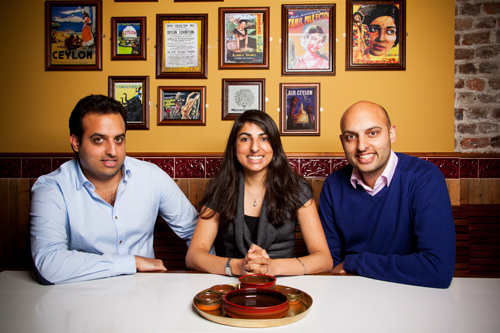
What was the general reaction to your decision to swap the world of banking for hospitality among your family and how did it make you feel?
It was well received because I was joining the family business, which had already been set up by Karam and Jyo. Actually, Jyo was still in banking and I’d moved back from Germany [after my year abroad], finished my degree at Nottingham and then moved back to London. I realised that banking wasn’t for me, so was exploring the management consulting route.
Numbers were always my thing at school, but something about it didn’t gel with me anymore. While I was looking for roles in management consulting, my brothers told me Trishna’s general manager was moving back to Austria, so they asked me to give them a hand. That was it – three days later, my applications all went into the bin!
Even at university careers fairs, there was zero representation from hospitality.
My parents have always been very supportive. They saw the hard work going into it, which kept us out of trouble! At school, though, hospitality wasn’t ever mentioned as a potential career choice. We were given the usual options, but where do the creatives come into that? Even at university careers fairs, there was zero representation from hospitality.
But things are changing now. My brothers visited Haberdashers’ [private school in North London] to talk to students about hospitality being a viable career. Pre-Covid, we’d also signed up for careers fairs as that’s when students are more receptive. When I started my degree, I had no idea what it was about! It would’ve helped to know how I could apply what I was learning in the real world.
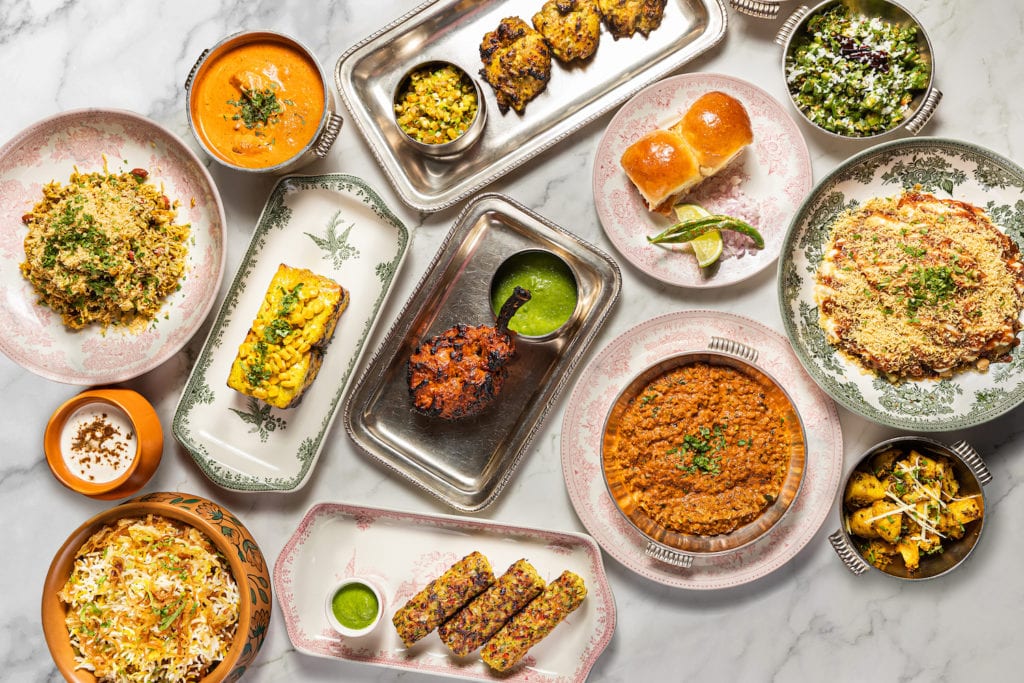
What has been the most memorable feedback to one of your wine lists or a recommendation you’ve made to a guest and why has it stuck with you?
When reviews come out, people are used to them being purely about the food, so when the wine list or wait staff are mentioned, that’s always a huge win! We’re doing what we’re doing now because of Karam. His focus has always been the food, the concept, the décor and the design and I handle the rest, i.e. hospitality, service and beverage. My role is to elevate the experience, so it’s amazing to get recognition for that.
Some reviews have mentioned that we champion lesser known regions and showcase a wide range of wines which can be matched with Indian cuisine, which is also very diverse. My aim is to compile a wine list that doesn’t clash with our food, and also to get people out of their comfort zone without making them feel too uncomfortable! For example, I wouldn’t put an Indian wine on for £60-80 because most people wouldn’t want to pay that for something they’re unsure about; it’s a different story for old world wines.
My role is to elevate the experience, so it’s amazing to get recognition for that [in reviews].
The most negative experiences I’ve had are when people try to test you in the wrong way. For example, if someone has ordered an Argentinean Malbec and we’ve run out, we offer them a Chilean Malbec instead. They then ask me what the difference is, so I go through that. The next question is, “How do you know, have you tried them all?” Yes, I have. I’m all for long conversations about wine if a guest is genuinely interested and wants to pick my brains, but I hate when they try to belittle and undermine me. When we have a good rapport, it’s fun and guests have a unique experience.
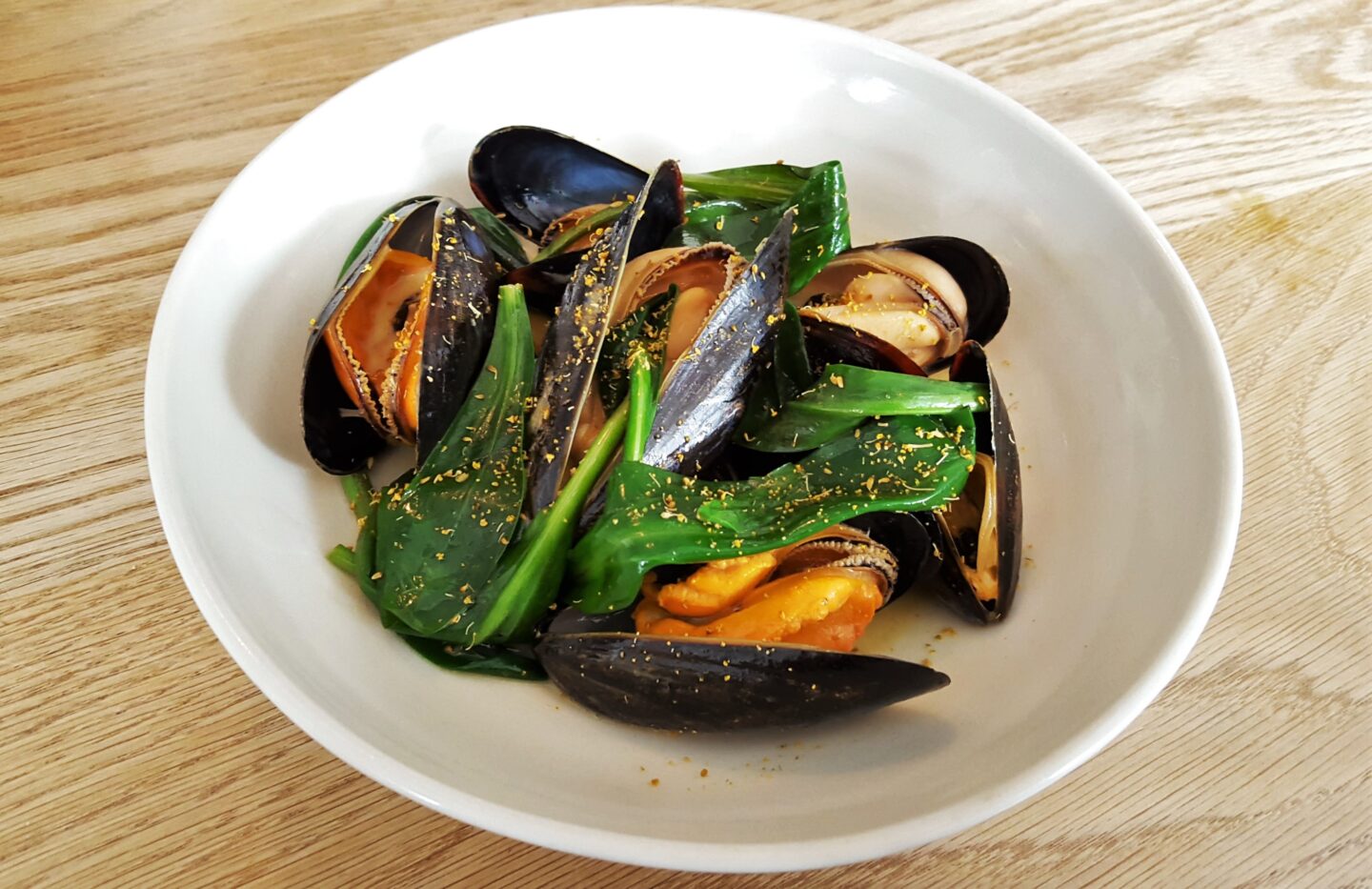
Have you encountered racism in the world of wine and if so, how did you handle it?
With many of our restaurants being Indian, I’ve never experienced racism; perhaps I’ve been oblivious to it. I did feel it growing up, but I’ve never felt it outright.
When I’d just taken over the wine list at Trishna, one of our suppliers had invited me for a Bordeaux tasting at the Andaz Hotel. I jumped on the Tube after lunch service, only intending to go for couple of hours and be back for dinner service. I walked into the hotel wearing black trousers and a sweater and there were about 50 men in suits, all white and middle-aged; the tasting was for buyers in the industry as well as private clients. The looks I got… I’m not sure if they were for being 23, female or Asian, or all three!
I wanted the ground to swallow me up. I felt very uncomfortable, even though nothing was said. It was all fine in the end, but I kept wondering what they were thinking about me. That was the first time I felt uncomfortable, but it was also the last time.
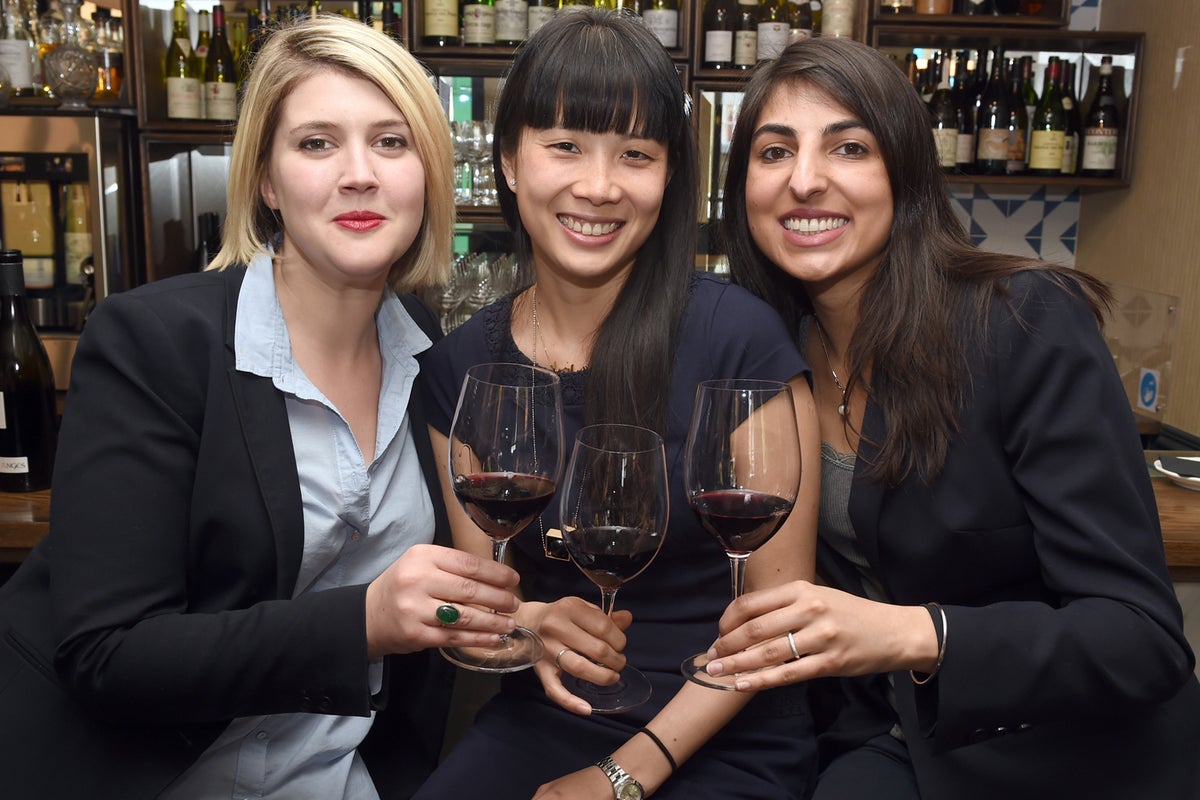
What’s your experience of being a woman in the wine industry?
There has been a monumental shift in the industry: you’ll probably see more women than men now, particularly in London! I understand why those stereotypes are there, though: in the old days, people learnt about wine by becoming a seller hand and lugging boxes, so naturally the jobs were given to young, fit and able guys who were willing to do the grunt work and then learn from winemakers, sommeliers, etc.
The mould has been broken now, but 10 years ago, I felt out of place.
The mould has been broken now, but 10 years ago, I felt out of place. I was 23, fresh out of university, went straight into the industry and it was very daunting. I was confident and loved wine, but you question everything. You put the wine list together and know the menu inside out, so you should be able to give the best experience, but when someone asks for the sommelier and you walk to the table and see that look of surprise, it knocks you a bit.
It was also hard to shift the ‘curry and beer’ association and get people to consider having wine with Indian food. Another challenge was being questioned about whether any of our wine even matched with the food. We were already on the backfoot, but I liked that kind of challenge!
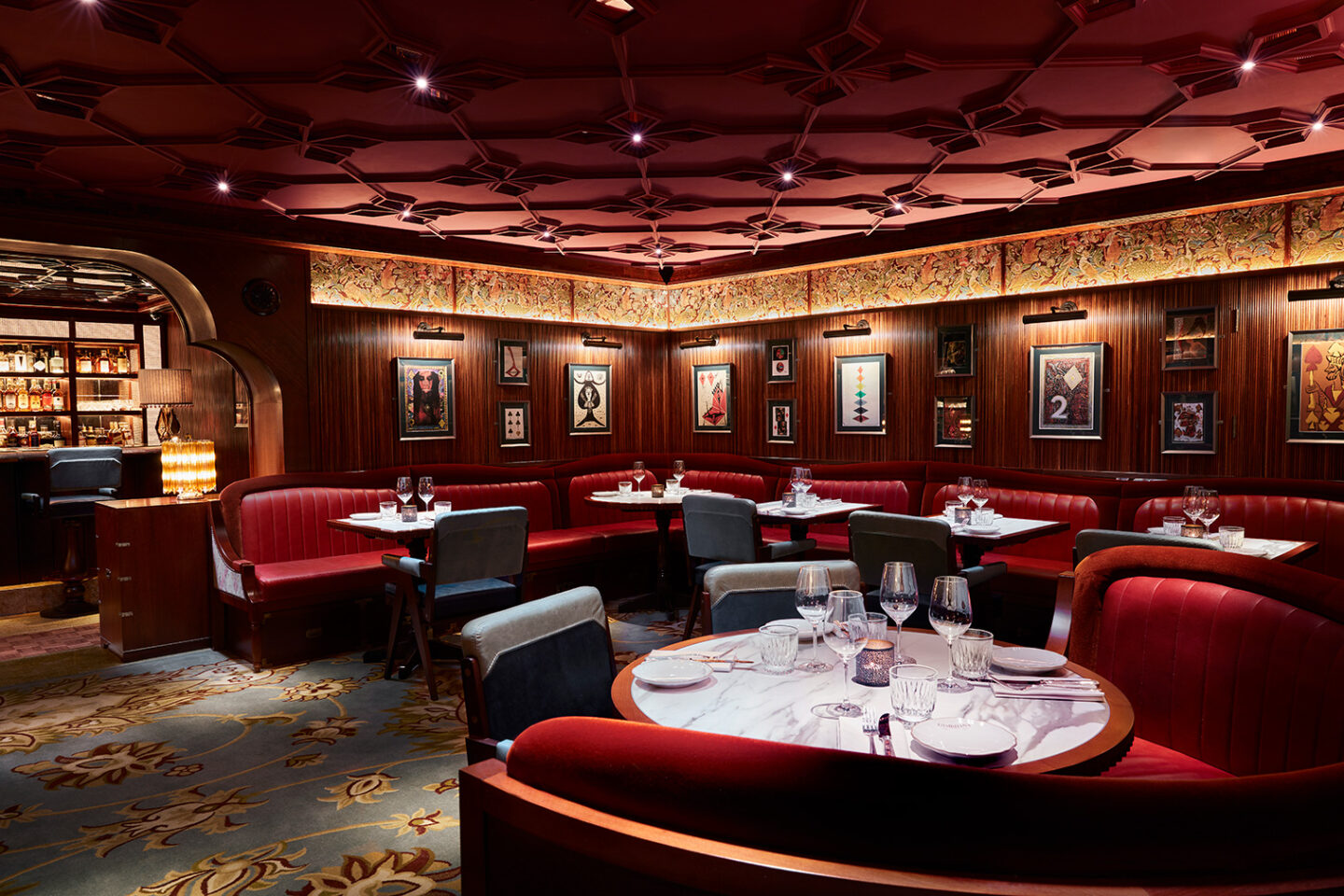
What would you say to those who are critical of Indian wines and how has Indian winemaking changed over time?
There has been a big evolution within Indian wine. If you think about the expertise and equipment in Europe and how much that has evolved and then put India into that context, you understand that it’s very difficult to assume that you can pick everything up, put it in another country and it’ll just be of the same quality.
The climate will always be against you, too. Finding suitable regions for it to work – and there are some you can make good quality wine out of – is the first hurdle. Then you have the expertise: India is never under resourced in terms of manpower, but when it comes to viticulture, it’s so specific that the smallest things can have the largest repercussions on the final product.
There has been a big evolution within Indian wine.
One of the wineries we work closely with is Fratelli, who make amazing wines. I discovered them in 2012 when Jyo was getting married and I was looking for wine to serve at the wedding in India. We listed them in the UK because it was far superior than any other Indian wines that existed in the UK market. They weren’t just making wine that was ‘good for Indian wine’: they were trying to compete globally. They had an Italian winemaker who had worked with similar varietals, they were planting different ones instead of the standard ones, e.g. Chenin, Sauvignon Blanc and Cabernet. They were putting Sangiovese in there and other grapes that the existing winemakers wouldn’t have dreamt of because it was too risky. They might not even have heard of these varietals over there.
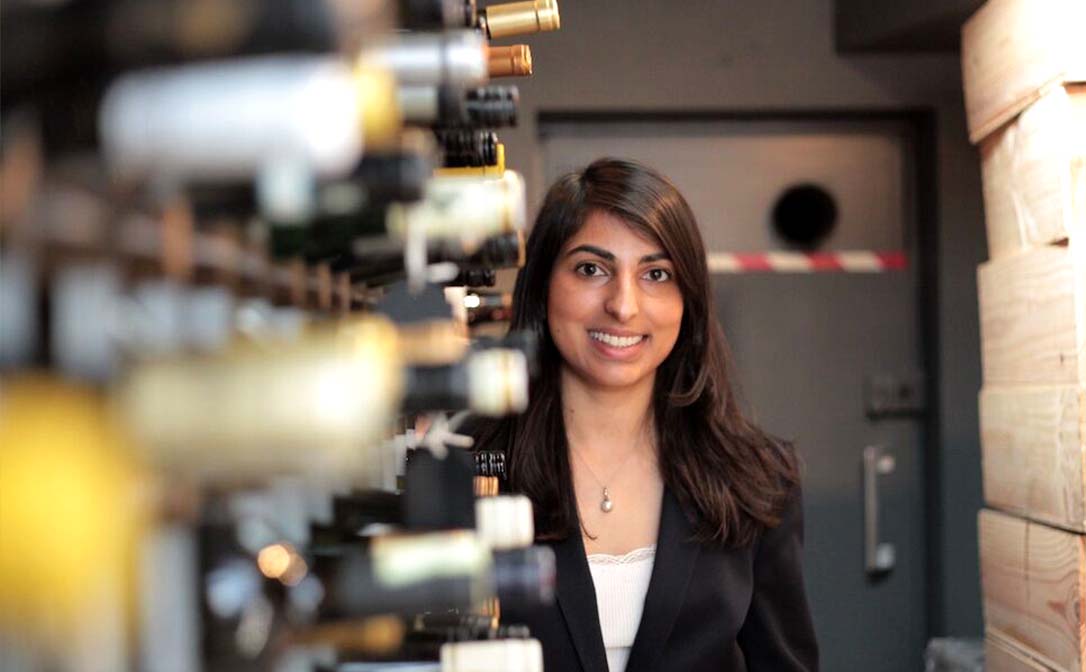
It’s also very expensive to drink imported wine in India, so more people need to be drinking the local stuff. Perhaps that was taken advantage of a bit, but we’re seeing a change as people travel more and their palates are becoming more sophisticated. They think, “Why should I drink Indian wine when I can have a French one which tastes so much better?”
I finally feel proud to have Indian wines on our lists that I’m happy to sell as Indian wine which will compete with the rest of the wine list. There are a lot of foreign winemakers going to India to try and make waves, e.g. Möet have been there for a long time. There are still several elements against you when growing grapes, but it’s definitely one to watch.
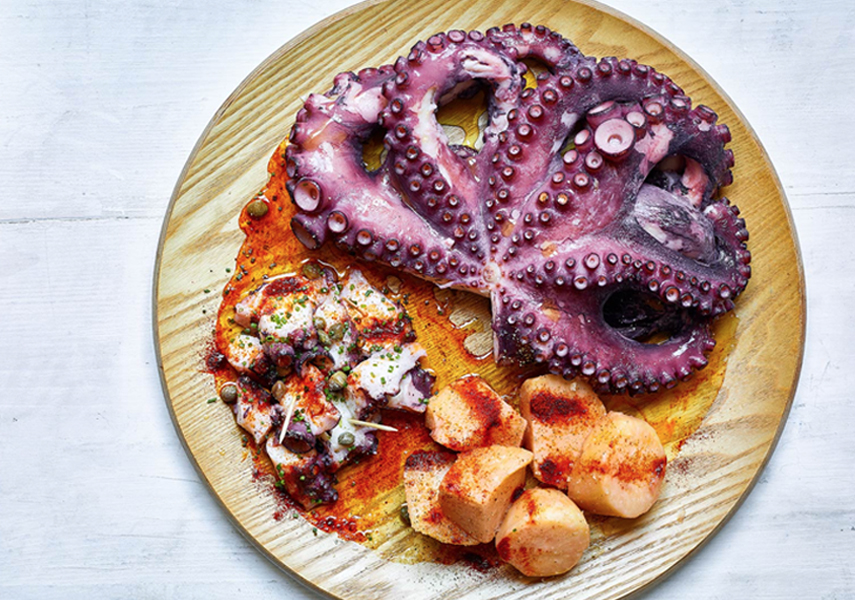
You recently set up JKS Restaurants to become an approved WSET course provider. What prompted this decision and what kind of response have you had?
I completed my advanced level of the WSET in 2010-2011 and wanted to start training others at Trishna, but the courses are expensive. As [JKS has] grown, a lot of requests have come through for training from our staff. But it wasn’t until 2016 that I started my diploma in order to set us up; I could only teach advanced level after completing a diploma because you have to be one step ahead as it were.
As a bespoke program, it needs to cover all bases because we do things differently. The style of wines we offer in the restaurants might not be found in traditional textbooks, so I wanted people to understand that side of it. When I did the intermediate, they said, “This is Sauvignon Blanc and it won’t be oaked.” I replied, “OK, but we have five oaked ones on our wine list at Trishna.” So if [our staff] are being taught something like that, I want to be there to counteract it. We’ve put around 50 people through it and I love building a rapport with a smaller group of people in this way.
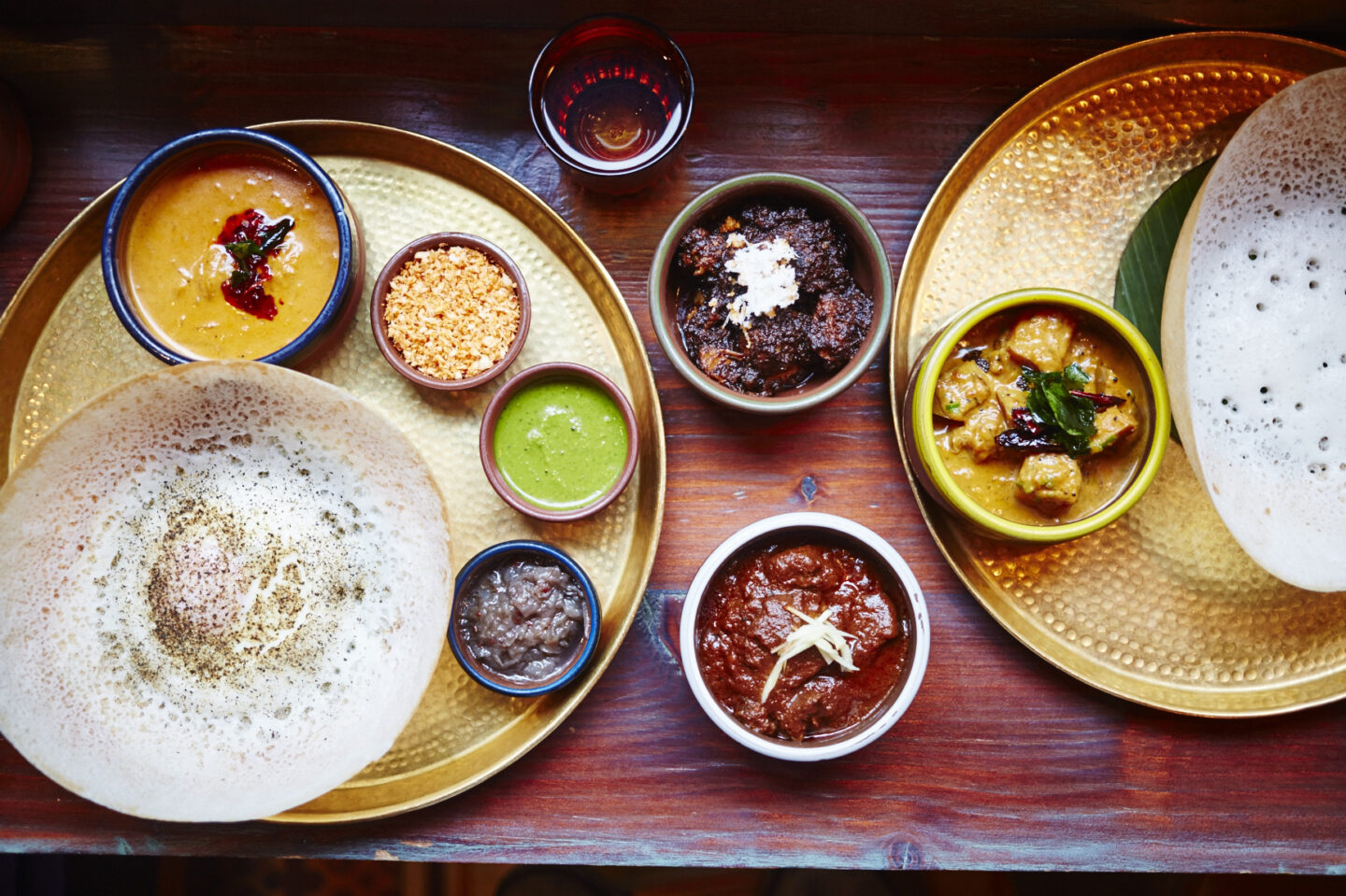
How does the reality of becoming a mother compare to your early expectations?
I was always petrified of the bit before the baby comes and thought everything afterwards would be easy! I thought, “I love kids, I’ll be fine.” Obviously, it’s not as straightforward as that, and now I’m expecting number two, so it’s going to be interesting!
My working pattern had to change, of course. When I was pregnant with my eldest and we were opening Hoppers, I thought there was no reason why I couldn’t be doing it. I wanted to do as much as I could while I was still carrying the baby. After the baby arrives and you’re both working evenings, it’s very difficult for my husband [Karan Gokani, Director of Hoppers Restaurants] and I to be out, so my role has become more office based.
You can only see the bigger picture when you step away from service and running the restaurants.
Back in the day when Karam was in the kitchen and I was on the floor seven days a week, 16 hours a day, you can get quite blinkered and end up missing small things and getting frustrated. As the group grew, that happened increasingly often, and we’ve grown in an organic way, which wasn’t necessarily the most efficient way. We look at each project individually and then retrospectively ask ourselves how we can behave like a group. You can only see the bigger picture when you step away from service and running the restaurants.
The frustration we’re feeling during the pandemic is because we’re doing all the analysis and so on, but things change the following week and it’s back to the drawing board again. For the last two months, I’ve been trying to figure out what we’re going to do at the end of the furlough period, but it keeps changing: 10pm curfew, Tier 2 restrictions and a potential second lockdown. What they’ve done with the tiered approach feels like that day in March when Boris told people to avoid restaurants, but didn’t advise them to close. We were like, “Cool, so how are we meant to pay the rent?” We’ve seen a huge drop off this week, which was inevitable, so I’d rather have another lockdown versus this situation.
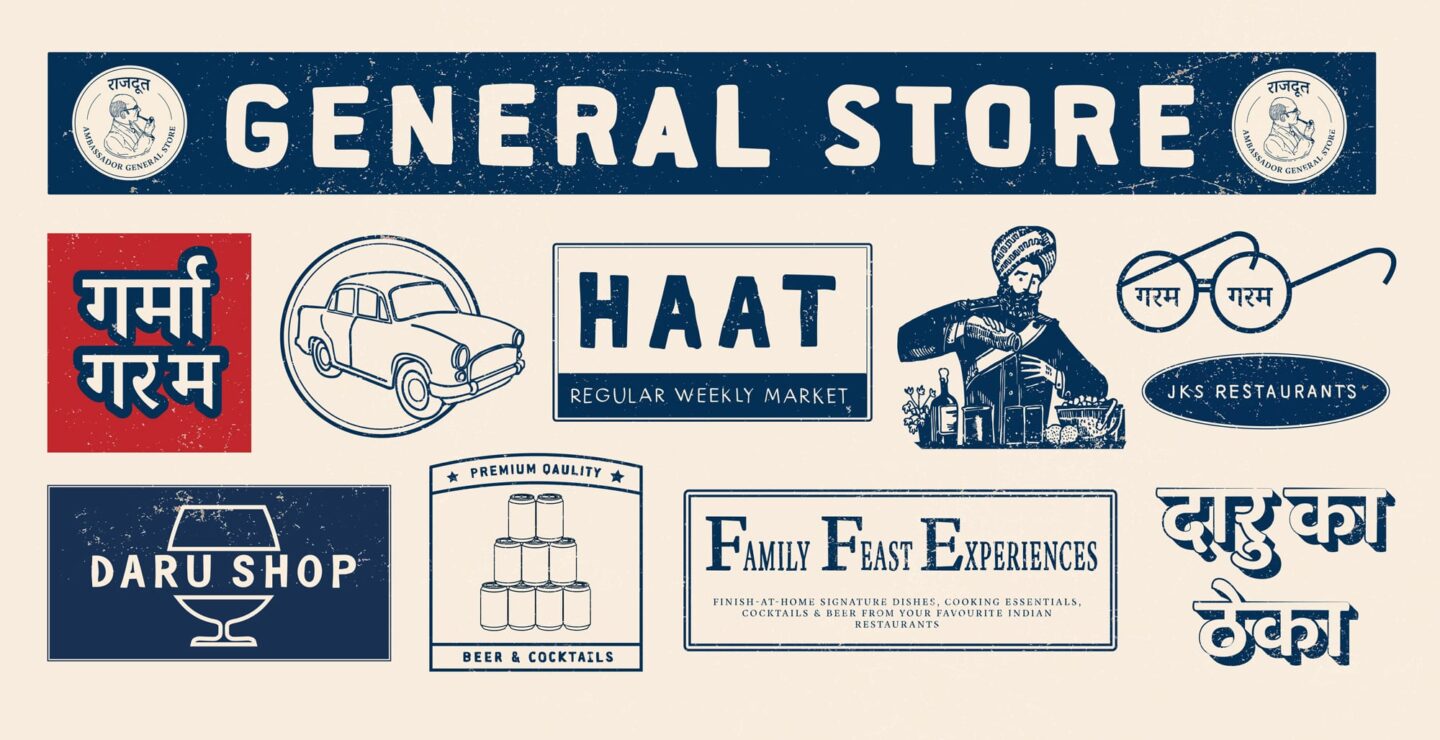
What work-related observations did you make during the first lockdown?
We went from 16 restaurants and a takeaway brand [Motu] all operating successfully and generating a certain level of revenue to zero overnight. With Motu, the chefs weren’t comfortable with having to work initially and it wasn’t fair of us to force them to do so, so we shut that down as well.
It was a massive wake-up call: we’d spent the last seven years building this group and then went to nothing, which was scary. Our first reaction was, “How do we fix this?” We moved as many brands as possible to delivery platforms and got Motu back up and running after about a month when people were more comfortable travelling to work.
It was a massive wake-up call: we’d spent the last seven years building this group and then went to nothing.
We’ve just launched Ambassador General Store, our online retail platform [JKS also have 8 online platforms for cook-at-home boxes], which we spent most of lockdown working on. We’d wanted to get it going immediately, but we realised that we needed to do it properly and not rush it. With all these changes we’ve implemented, we hope that we’ll come out of this a better business for it for having diversified and looking internally at our values. The latter is something that often gets ignored. Our blueprint came halfway down the line because it was all organic growth; we didn’t have a 10-year plan. We knew we wanted to have restaurants, but the group has since developed with our own brands and then our partner brands.
Unfortunately, we’ve had to cut back our head office significantly because we were gearing up for big growth, but that’s been halted now. We were 735 before lockdown and our last payroll was 515.
Another thing we did before reopening the restaurants was look at our cost base, staff being the biggest one. We controlled it by limiting our opening hours then the Eat Out to Help Out scheme started and that flipped everything! On Monday 31st August, which was a sunny bank holiday weekend, we had our best day at Hoppers Soho in five years – it was insane!
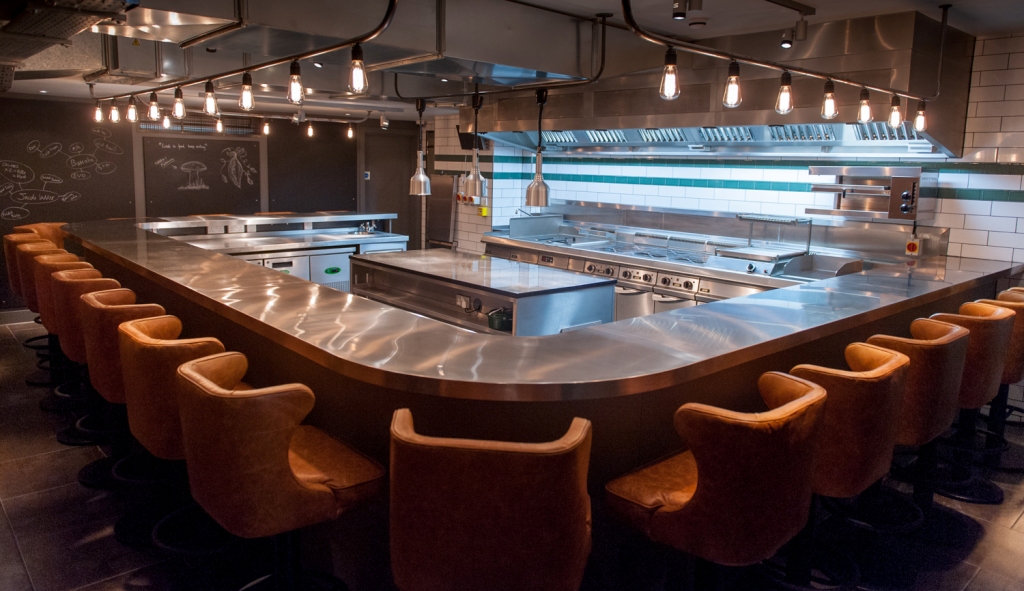
And what about personally?
I’ve been working 100 miles an hour for the past 11 years, unsociable hours, but everything stopped when I had a baby. Pre-baby, I had my mind on so many things and suddenly you’re focusing on a single thing. I took a year off because I wanted to be 100% on it when I returned. I picked up lots of momentum in the past 18 months then bam – shut down again!
I became busy managing people and doing comms from behind a desk, not seeing people physically, which was challenging because I love the people side of my job and industry. Jyo and I were up until 4-5am wondering what we could do to ensure we had a business on the other side. Trying to decipher the Job Retention Scheme was a nightmare: we made hundreds of flow charts for staff to understand so they knew what they’d be paid and when. How do you communicate a complex scheme to 750 people without having to pick up the phone to call them individually?
Lockdown changed our lifestyles and the way we see family.
Even though I was so busy, it was lovely to be around my son more; he thrived on having both parents at home. It was great for us as a family because when else would we have four consecutive months at home? We’re lucky because my brothers, parents and I all live in West Hampstead, so we got to hang out in each other’s gardens. Lockdown changed our lifestyles and the way we see family; it has put so much into perspective.
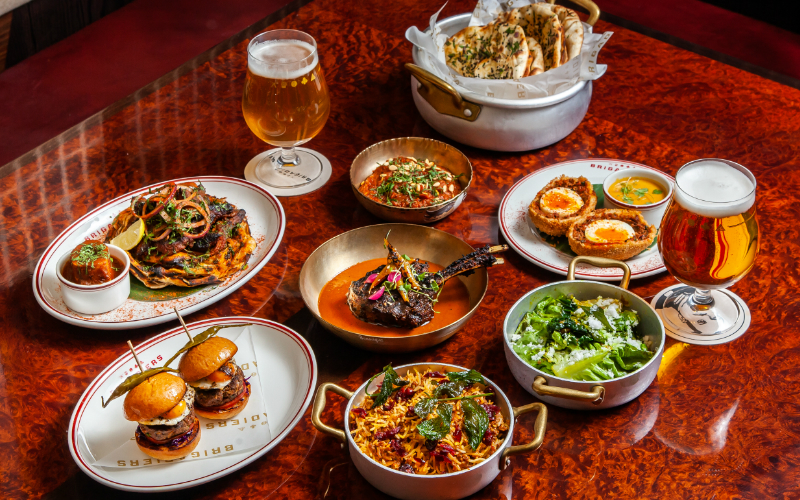
If you could go back in time, who would you like to meet and why?
My maternal grandfather, who sadly died when I was nine. He was in the Foreign Service, so my mum, who was the youngest, travelled around the world with him as he was posted to different places. Some of the stories that she tells me are amazing! Now that I’m older, I’d love to have those conversations with him, down to his thoughts on what the food and culture was like in [the UK] back then – everything comes back to food for me! Our Ambassador General Store pays homage to him because he was an Ambassador, while Brigadiers pays homage to my paternal grandfather.
Speaking of the latter, there are so many pieces of his life that I don’t know because I was too young when he was around, like when he lived in Yugoslavia as it was formerly known. I didn’t know about this until his funeral recently! I got to a point where I felt silly [for not knowing certain facts], so I’d pretend I knew it and not question anything. Having grown up away from your heritage, it’s very easy to lose sight of it and as time goes by, there’s a danger of it getting more and more diluted.
What’s the best compliment you’ve ever received and why was it so meaningful to you?
This is a tough one! The one that has stuck with me is when two different people said the same thing to me at Trishna. I was on the phone at reception taking a booking and one of the guests dining behind me got up and said, “You’ve got an interesting voice. Have you ever thought about being a newsreader?” I looked at him and told him that I hadn’t. Later that day, I was serving a couple and they said, “Has anyone ever told you that you’ve got a voice for radio?” I cheekily responded, “Well, it’s better than having a face for radio!” I’ve never heard it again since. It was so bizarre, but I took it as a compliment. I guess it was meaningful because I just love chatting – sorry it’s not a more exciting story, though!
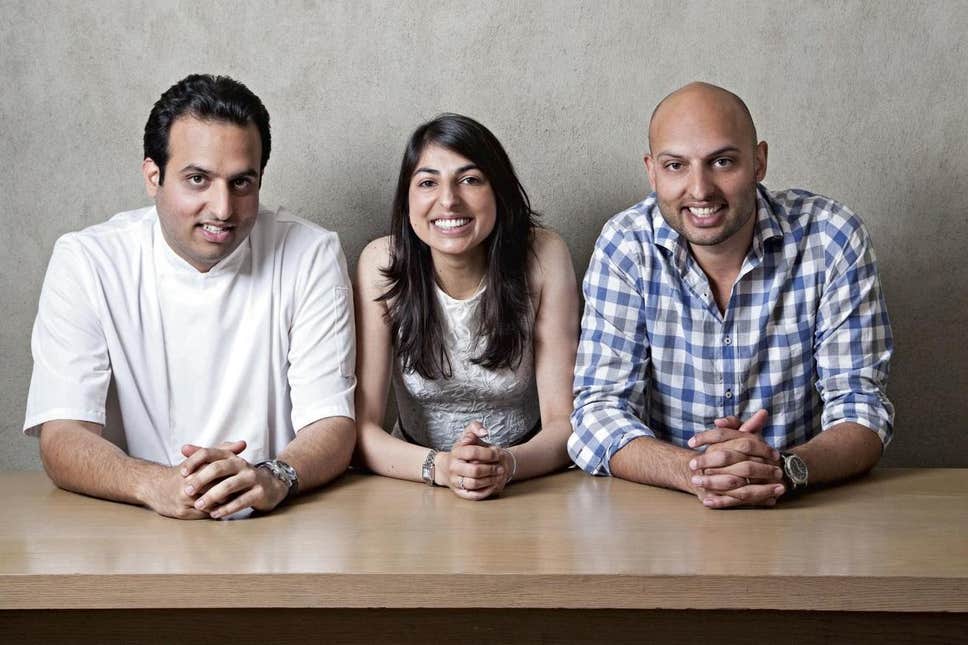
Which lie do you repeatedly tell yourself and why?
Whenever we open a restaurant, we tell ourselves that it’ll be fine. We think we’re weeks away [from being ready], but we’re actually months off. It’s like, “We’ll get there. We don’t have any staff – we need 40 people to open this restaurant and we’ve got three – but we’ll be fine.” You don’t know how you’ll get there, but you just have to [find a way]. Once we’ve opened, you can’t let anything slip during service, especially if you’re running the shift. When things go wrong, people look to you for guidance and you simply plaster a smile on your face and figure it out.
In which ways are you the same as your childhood self?
I’m still constantly trying to stand up to my brothers! It has shifted now, but I was often treated like the younger sister. I did have the best of both worlds because Karam and I are very close in age then Jyo is eight years older than me, so he’d always protect me when Karam and I would fight.
Our individual character traits are highly complementary, and our personalities perfectly suit the roles we have in the business. They see me less as that little sister, but I’ve had to fight to earn their respect!
Growing up, I always wanted to be a teacher and I got a taster of it last year when I set up the [wine] school, as well as the work I do with the learning and development program. That desire to teach is still within me, so let’s see what happens further down the line.
If you enjoyed reading my interview with Sunaina Sethi, please check out the rest of the Spotlight on Chefs series here.
LINKS
JKS Restaurants, Ambassador General Store, Lyle’s review, Hoppers review, Kitchen Table review, Bao Soho review, Bao Fitzrovia review, Taste of London 2016, Top Meals of 2019
PIN FOR LATER


Really enjoyed the interview, Seetal! I’m a big fan of so many of the restaurants in the JKS group, and really fascinating to learn of Sunaina’s experiences. I’ve been struck how they’ve managed to be so innovative in these incredibly challenging times for restaurants – pioneering the meal-kits, which are such a great initiative. Thanks again!